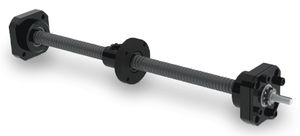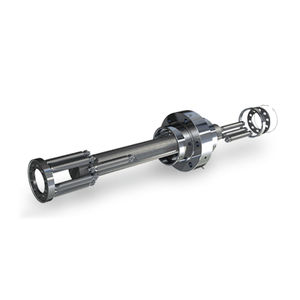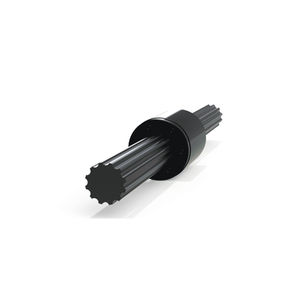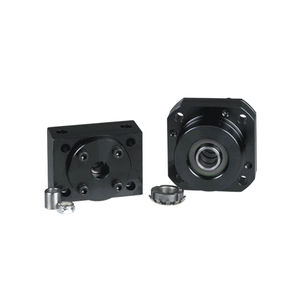
Metal plain bearing ball screw
Add to favorites
Compare this product
Characteristics
- Material
- metal
- Applications
- ball screw
Description
Linear motion applications utilizing a ball screw or an acme screw require high tolerance screw end machining matched with precision bearing mounts. Nook Industries has designed a family of standard machined ends applicable to a variety of bearing arrangements.
Specifying standard machined ends results in quicker deliveries. The machined ends shown below represent designs that are compatible with common application requirements for either simple or fixed bearing support. Included in the chart are the locknut and lockwasher identication.These standard ends may be machined and ground to finish size.
END MACHINING TYPES
1K, 2K, 3K, 4K and 5K are designed with a shaft extension and keyway for square keys.
1L, 2L, 3L, 4L and 5L are designed with a shaft extension without a keyway.
1N, 2N, 3N and 4N are designed to be a non-driven support end.
Double bearing supports use a Type 3N, 3L and 3K.
Single bearing supports use Type 1N.
Where standard ends do not satisfy the application requirements, special ends may be machined to customer specifications. Please submit a print for a prompt and competitive quotationon end machining.
Catalogs
No catalogs are available for this product.
See all of NOOK INDUSTRIES‘s catalogsRelated Searches
- Linear motion system
- Plain bearing
- Bearing unit
- Metal plain bearing
- Steel linear guide
- Ball bearing linear motion system
- Metal bearing unit
- Linear bearing
- Linear ball bearing
- Track linear motion system
- Metal shaft
- Block-bearing
- Ball bearing bearing unit
- Precision shaft
- Ball bearing unit
- Profiled guideway linear guide
- Steel shaft
- Splined shaft
- Open linear bearing
- Single shaft
*Prices are pre-tax. They exclude delivery charges and customs duties and do not include additional charges for installation or activation options. Prices are indicative only and may vary by country, with changes to the cost of raw materials and exchange rates.






